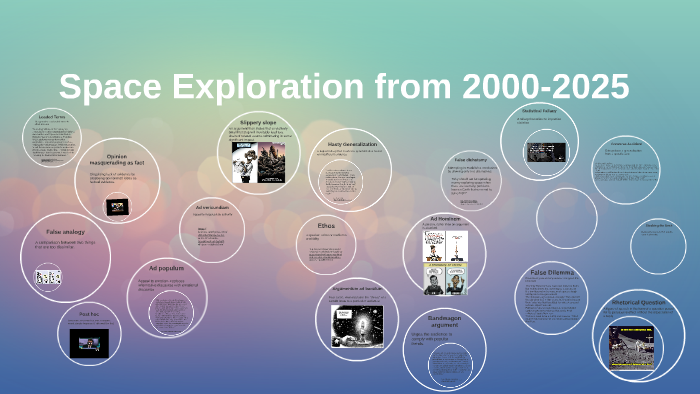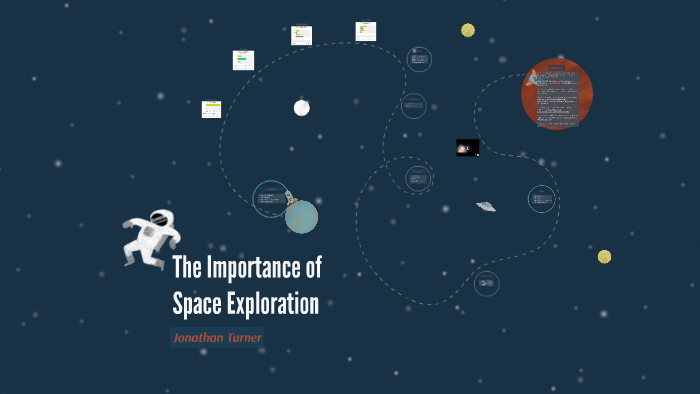The Significance of 2025 in the Realm of Space Exploration
The Significance of 2025 in the Realm of Space Exploration
Introduction
With enthusiasm, let’s navigate through the intriguing topic related to The Significance of 2025 in the Realm of Space Exploration. Let’s weave interesting information and offer fresh perspectives to the readers.
Table of Content

The Significance of 2025 in the Realm of Space Exploration
The year 2025 holds a pivotal position in the timeline of space exploration, marking a potential turning point in our understanding of the universe and our place within it. While a specific "2025 Explorer Release Date" does not exist as a singular event, this year is projected to be a crucial juncture for several ambitious space missions and technological advancements. This article delves into the key factors that make 2025 a landmark year for space exploration, highlighting the upcoming missions, technological breakthroughs, and the potential impact these developments will have on our understanding of the cosmos.
A Year of Ambitious Missions
2025 is anticipated to witness the launch of several high-profile space missions, each with its own scientific goals and technological innovations. These missions aim to unravel mysteries about our solar system, search for signs of life beyond Earth, and advance our understanding of the universe’s origins and evolution.
-
The James Webb Space Telescope (JWST): Launched in 2021, the JWST is already revolutionizing astronomy with its unparalleled infrared vision. However, 2025 marks a significant milestone for the telescope’s mission. By this time, the JWST will have completed its initial science program, providing crucial data for the scientific community. This data will be used to study the early universe, the formation of stars and planets, and the atmospheres of exoplanets, potentially revealing the existence of habitable worlds.
-
The Psyche Mission: This NASA mission, scheduled to reach the asteroid 16 Psyche in 2026, will study a unique metallic asteroid that is believed to be the exposed core of a protoplanet. The mission’s data will provide insights into the formation of planetary cores, the composition of the early solar system, and the potential for metallic resources in space.
-
The Europa Clipper Mission: Set to arrive at Jupiter’s moon Europa in 2030, the Europa Clipper will conduct detailed observations of this potentially habitable moon. The mission will investigate Europa’s icy shell, search for evidence of liquid water beneath the surface, and analyze its composition and potential for life.
-
The JUICE Mission: The European Space Agency’s JUICE mission, scheduled to arrive at Jupiter in 2031, will study the Jovian system’s icy moons, including Europa, Ganymede, and Callisto. JUICE will investigate the moons’ internal structure, composition, and potential for habitability, providing valuable data for understanding the evolution of planetary systems.
These missions represent a significant investment in space exploration, signifying a global commitment to pushing the boundaries of scientific knowledge. The data collected by these missions will undoubtedly revolutionize our understanding of the universe and contribute to the search for life beyond Earth.
Technological Advancements
The year 2025 also marks a significant turning point for space technology. Advancements in propulsion systems, spacecraft design, and data communication are paving the way for more ambitious missions and a deeper understanding of the cosmos.
-
Reusable Launch Vehicles: The development of reusable launch vehicles like SpaceX’s Starship and Blue Origin’s New Glenn is poised to revolutionize space access. These vehicles aim to reduce the cost of launching payloads into space, making space exploration more accessible and sustainable.
-
In-Space Propulsion: Advancements in electric propulsion systems and ion engines are enabling longer-duration space missions and more efficient travel within our solar system. These technologies will be crucial for missions to distant planets and asteroids, allowing for more extensive exploration and scientific investigation.
-
Advanced Imaging Technology: The development of high-resolution cameras, spectrometers, and other advanced imaging technologies is enabling scientists to study celestial objects with unprecedented detail. This enhanced imaging capability will provide new insights into the composition, structure, and evolution of planets, stars, and galaxies.
-
Artificial Intelligence and Machine Learning: These technologies are playing an increasingly important role in space exploration, aiding in data analysis, mission planning, and even autonomous spacecraft operations. The use of AI and machine learning will streamline data processing, enhance scientific discoveries, and enable more efficient space exploration.
These technological advancements are not only crucial for achieving the ambitious goals of upcoming missions but also pave the way for future exploration endeavors. They will enable us to explore further, observe more accurately, and analyze data more efficiently, ultimately leading to a deeper understanding of the universe.
The Importance of 2025
The confluence of ambitious missions and technological advancements makes 2025 a pivotal year for space exploration. This year marks a turning point in our ability to explore the universe, uncover its secrets, and potentially discover signs of life beyond Earth.
The data collected by these missions will provide crucial insights into the formation and evolution of our solar system, the existence of habitable worlds, and the potential for life beyond Earth. The technological advancements will enable more ambitious missions, accelerate scientific discoveries, and pave the way for future exploration endeavors.
FAQs
Q: What are the main goals of the missions scheduled for launch in 2025?
A: The missions scheduled for launch in 2025 aim to study the early universe, the formation of stars and planets, the atmospheres of exoplanets, the composition of planetary cores, the potential for life on Europa and other icy moons, and the evolution of planetary systems.
Q: How will the technological advancements of 2025 impact future space exploration?
A: The advancements in reusable launch vehicles, in-space propulsion, advanced imaging technology, and artificial intelligence will enable more ambitious missions, reduce the cost of space exploration, enhance scientific discoveries, and pave the way for future exploration endeavors.
Q: What is the significance of 2025 in the context of the search for extraterrestrial life?
A: 2025 marks a significant year for the search for extraterrestrial life, as missions like the JWST and Europa Clipper will be collecting data that could provide evidence of habitable worlds and potentially even signs of life beyond Earth.
Tips
- Stay informed: Follow the progress of upcoming missions and technological advancements by subscribing to reputable space news sources and websites.
- Engage in discussions: Participate in online forums and communities dedicated to space exploration, sharing your knowledge and perspectives.
- Support space exploration: Encourage government funding for space exploration programs and consider supporting organizations dedicated to space research and education.
Conclusion
2025 represents a crucial milestone in the history of space exploration, marking a period of unprecedented scientific discovery and technological advancement. The missions scheduled for launch in this year, combined with the breakthroughs in space technology, will undoubtedly revolutionize our understanding of the universe and potentially lead to the discovery of life beyond Earth. This era of exploration promises to be a period of immense scientific progress, pushing the boundaries of human knowledge and inspiring generations to come.








Closure
Thus, we hope this article has provided valuable insights into The Significance of 2025 in the Realm of Space Exploration. We appreciate your attention to our article. See you in our next article!